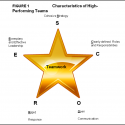 Introduction to Mentoring
Introduction to Mentoring
In Ancient Greece, Odysseus entrusted the education of his son, Telemachus, to a trusted counsellor and friend. This trusted and wise friend, Mentor, reportedly became the counsellor, guide, tutor and mentor for his protégé, Telemachus.
Put at its simplest the Mentor is there to help the Mentee to learn. Much of the learning is enabled by the Mentor guiding the Mentee into learning situations and then helping them to reflect on and consolidate the learning.
Mentoring is often thought of as a partnership largely because there are obligations, implicit or otherwise, that each party takes on. One key to a successful mentee/mentor relationship is to be aware of your obligations and take them seriously.
Why have a Mentor to help your career in Singapore?
There are many benefits to having a mentor. The key to the value of a mentor is that whatever you are facing, your mentor will probably have been there before you. They can give you advice based on their experience. This means you are benefiting from the wisdom of someone who has probably faced the same issues that you have, many times over.
Finding out how your mentor dealt with a situation, and why they acted in the way they did can help you make decisions for yourself. A mentor will provide you with an independent opinion that you can use as a measuring stick when you’re faced with a difficult situation. They can also help to boost your confidence and help you avoid mistakes.
Having a mentor will help boost your career progression in Singapore, in a number of ways. Mentors can advice you in making decisions to progress your career, expose you to opportunities you may not previously have considered, or had access to. Mentors are able to serve as a reference to building your network, and perhaps even guide you to become a manager to rise to higher levels within an organisation.
Importance of Mentoring to Leadership Development In Singapore
Growing leadership expertise in a short period of time within an organization is a continual challenge. The speed of projects and the speed of the need for innovation has increased so that individuals are thrust into positions of management and leadership in an ever-increasing pace.
How are these individuals going to learn? But more important, how are they going to be able to quickly apply what they have learned within their organizational culture and in a hyper competitive business environment?
In the past, an individual would learn skills and knowledge through training, education and experience, and the organization could afford to wait around for him/her to come up to speed. But today, with the fast pace, organizations need to have their people learn – and be able to apply that learning – more quickly.
Studies have proven that there are limits as to how fast you can drive education and training and have it be effective. Also, due to economic constraints within organizations, many times the problem is not how fast to drive the education and training, but how to even find available dollars and resources to get it to individuals that are destined to lead the organization now and in the future.
What can organizations do to help solve this dilemma and assist in the transition between “education” and “experience”?
The answer is Mentoring!
Building the relationship
Hopefully you are now convinced of the benefits of mentoring. Once go ahead and find a mentor, the next step is for you both to discuss your expectations and what you hope to achieve from the relationship. You need to be open to learning and have good understanding of yourself and a desire to achieve.
The rewards of a mentoring relationship are too great to ignore, sometimes it can just be a matter of being a natural progression in a bond with a senior colleague at work or an industry contact, or it may be a relationship that you have to actively pursue. Regardless of the means, the benefits speak for themselves and you will always have an experienced sounding board to assist you through tricky times and be there to celebrate through your achievements. No matter how small the challenge, your mentor will always understand as he or she has been there before and is familiar with the trials and predicaments you experience on a day- to- day basis.
Conclusion on Mentoring
For Mentoring to work effectively the Mentor must not take responsibility away from the Mentee. In order for this to work the Mentor should take responsibility for managing the relationship but should allow the Mentee to ‘set the agenda’.
Managing the relationship involves ensuring that the Mentee feels supported and encouraged and able to speak with the Mentor without the fear of judgements being made. The Mentor also needs to feel that the discussion and information exchanged is kept confidential.





